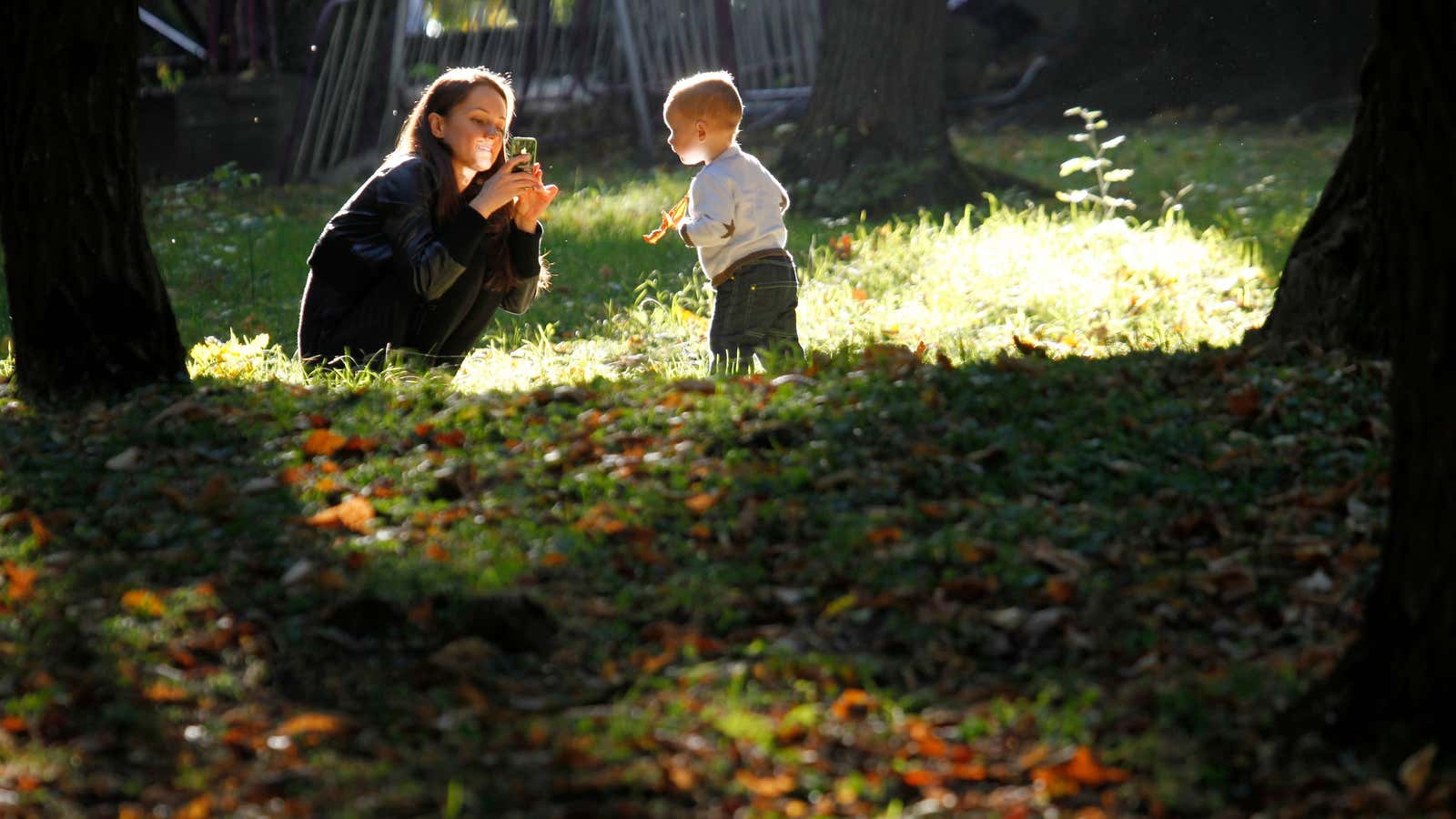In the grand scheme of human history, the baby photo is a pretty new invention, but now that smart phones are ubiquitous, the first years of today’s children are better documented than any other generation’s. Since social media is ubiquitous as well, many of those photos end up online, shared to parents’ Facebook and Instagram accounts. In a 2016 study, parents shared an average of 116 photos of their kids (pdf, p. 5), and the Child Rescue Coalition, a Florida-based nonprofit dedicated to shielding children from predators, estimates that 90% of children have photos on social media by the age of 2. As kids grow up, they resent their lack of control over what their parents post.
When parents share their latest family outing or their kid’s adorable new outfit with friends and family, they may also be sharing with strangers. And some of those strangers, it turns out, use those photos to create online fantasy worlds.
It’s called digital kidnapping. Instagram users “roleplay” with these photos, using hashtags like #AdoptionRP, #KidRP, #BabyRP and #OrphanRP to post children’s pictures “up for grabs,” i.e., to be used to establish the identity and backstory of their “character.” For instance, in a photo that shows a full baby diaper, the user implores someone to adopt “Baby Tye,” who was “put into a big basket with his teddy, some milk and himself on the streets.”
Sometimes, it seems, people roleplay as the child, making up a backstory just for that child and interacting with others as if they were the child. But other times, they “adopt” the child to be part of a larger roleplay, with intricate plotlines and relationships. In “family” roleplay accounts, multiple people interact with each other, pretending to be couples, siblings, or parents to children, and the photos are just for aesthetics; rarely is there continuity in how a family looks. For instance, someone might post a picture of a happy-looking couple with a comment like, “This is my baby, love him so much,” to establish a romantic relationship, but post a picture of a totally different man with a child, saying, “So blessed to have such a great dad to my children.” The photos, it seems, establish the look and feel associated with characters, but it appears rare that a roleplayer uses the same real child’s photos for their entire account.
While the accounts I’ve seen keep it fairly PG, the bulk of roleplay community activity seems to happen in private. Most roleplay accounts advertise their policies in their bios or first posts, which establish an application process to join roleplay groups.
Nothing in Instagram’s policies prohibits roleplaying itself, but stealing other users’ photos is a violation of the site’s rules. Still, it’s difficult to police; many roleplayers use Instagram filters or modify photos in other ways so that reverse image searches won’t turn up a match with the original photo. And since it’s easy to make new accounts on Instagram (I made a Finsta to poke around the roleplay accounts), even if one gets banned or discovered, that same user can easily make another.
If you’re not an Instagram celebrity, though, here’s good news for you: most of the stolen photos used appear to be professionally styled and shot, so if you have a modest Instagram following and your photos are mediocre (no shame in that game!), you’re less likely to be targeted. I ran several through Google’s reverse image search and the ones that turned up hits were from “lifestyle” accounts with tens of thousands of followers. Some roleplay accounts specifically focus on YouTube stars like The Ace Family, or reality TV stars like Dance Moms. (Whatever you’re into, it seems, there’s a community for it online.)
Still, if you’ve got photogenic kids that you frequently subject to professional family photo shoots, or you’re a fan of using baby- or kid-related hashtags, more folks might find and use your photos. If you’re feeling paranoid after reading this post, double check your privacy settings to make sure only accounts you approve can view your photos.
